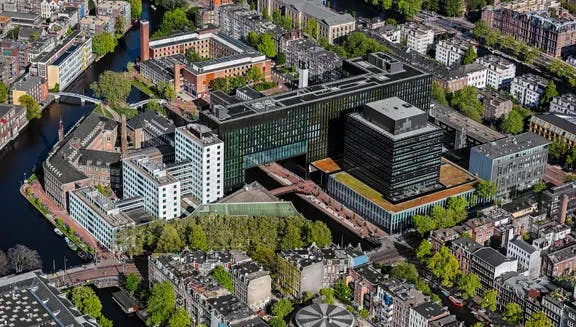
Scientists reveal new ‘atlas’ to map embryonic brain DNA for mental health
Mapping psychiatric predispositions with DNA
In the intricacy of human brain development, the embryonic stage holds profound significance. It's a period where the brain's blueprint is laid down, shaping the foundation for a lifetime of cognitive function and behaviour. Yet, until recently, this critical phase remained largely uncharted territory. However, thanks to the latest research by a team from the Vrije Universiteit Amsterdam (VU) and the Karolinska Institutet in Sweden, this mysterious phase is beginning to unfold.
In a joint study recently published by the authors, a comprehensive atlas has been unveiled, detailing the landscape of half a million cells in the embryonic brain. More than just a static map, this atlas reveals the dynamic activity of DNA within these cells, shedding light on the intricate processes driving early brain development.
At the core of this research lies the concept of "active" DNA – segments of genetic code that regulate the expression of proteins essential for cellular function. By mapping and deciphering the typical patterns of DNA activity in healthy brain cells, researchers can more effectively pinpoint variations that may predispose individuals to conditions such as ADHD, anorexia, autism spectrum disorders, depression, insomnia, and schizophrenia. The atlas serves as a valuable resource for studying not only psychiatric disorders but also other neurological conditions, including brain tumours.
Amsterdam facilitates important scientific findings
This news follows the recent allocation of multi-million euro funding from the Dutch government to the Institute for Chemical Neuroscience (iCNS) in Amsterdam. The funding aims to support the development of the 'Brain Atlas', a similar project focused on the cellular and molecular changes linked to symptoms such as anxiety and depression.
Beyond their scientific significance, these research projects underscore the power of collaboration in understanding the complexities of the human brain. By bringing together expertise from the Vrije Universiteit, Amsterdam UMC and multiple Amsterdam-based knowledge institutions, the researchers have pushed the boundaries and are opening up new possibilities for understanding and treating neurological and psychiatric disorders.
Related articles

Government grants millions to develop groundbreaking 'Brain Atlas'

€22M investment to help develop new therapies for blindness

Amsterdam UMC leads €12 million lung cancer research project

Amsterdam UMC becomes the first hospital in Europe to implant a double wireless pacemaker

Amsterdam’s ADORE Secures €9M to tackle cancer and neurodegenerative diseases

Ellogon.AI secures €1M to advance immunotherapy innovation

ERC advanced grants awarded to multiple Amsterdam knowledge institutes

Amsterdam-based startup Lapsi Health has just launched its AI-based stethoscope

Global healthcare leaders embrace generative AI to close ‘critical gap’ says Philips report

